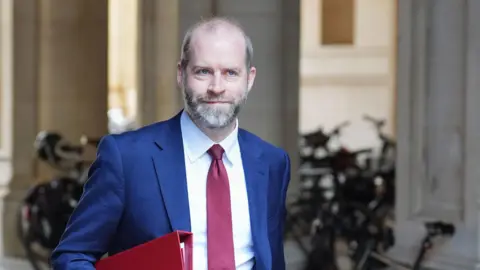22 September 2024

By Christian Oliver
Diane Abbott has warned that a new 'austerity drive' will increase racism faced by ethnic minorities 'bearing the brunt of the Government’s attacks'.
Speaking at a fringe meeting at the Labour Party conference on Sunday, the veteran Labour MP warned that the Government’s promise that “things will only get worse” presented a “grim outlook” for ethnic minorities in the UK.
“We are in a very difficult period," she said. "There is both a renewed war drive and a renewed austerity drive.
“Whenever either of these happens, they are always accompanied by an increase in racism. Now that both are happening simultaneously, black and Asian people in this country, as well as Muslims, are bearing the brunt of the Government attacks.”
Left-wing Labour MPs such as Ms Abbott have accused the Government of embarking on a renewed round of austerity as the Chancellor, Rachel Reeves, seeks to impose spending restraint on Whitehall that has so far included the scrapping of winter fuel allowance for millions of pensioners.

Read More: Action on climate change will be central to 'all' major policy, promises David Lammy in first big speech as foreign secretary
Read More: Prime Minister Keir Starmer unveils newest furry resident of Downing Street
But the Prime Minister Sir Keir Starmer insisted during a reception at the start of the Labour conference that he would not return to the economic policies of previous Conservative administrations.
Sunday’s meeting, organised by the campaign group Stand Up To Racism, also heard from Labour National Executive Committee member Mish Rahman, who accused the new Government of contributing to a political climate that made this summer’s riots “inevitable”.
He said: “Starmer’s Labour seems to have embraced the current debate by contributing throwing its own fuel onto the bin fire by promising their own blitz on illegal immigration.”
Accusing the Labour leadership of adopting right-wing rhetoric, he said: “Our fear now is seriously what (Nigel) Farage says today, the Tories will say tomorrow, and Labour may legislate the day after.”
Both Ms Abbott and Mr Rahman, along with other speakers, called on Labour members to press the Government to do more to combat racism in the wake of the summer’s riots.
Amid the party's conference, Labour faces a battle over cuts to winter fuel payments as trade unions push for the policy to be reversed.
Delegates to the party’s annual conference in Liverpool are expected to debate Labour’s economic plans on Monday, with the decision to remove winter fuel payments from 10 million pensioners set to feature.
 Chancellor of the Exchequer Rachel Reeves, Prime Minister Sir Keir Starmer and Deputy Prime Minister Angela Rayner at the Labour Party Conference in Liverpool. Picture: Alamy
Chancellor of the Exchequer Rachel Reeves, Prime Minister Sir Keir Starmer and Deputy Prime Minister Angela Rayner at the Labour Party Conference in Liverpool. Picture: AlamyThe exact wording of the motion delegates will vote on will be determined on Sunday night, but trade unions Unite and the Communication Workers Union have put forward proposals calling for the policy to be scrapped.
Unite has already unveiled billboards around Liverpool with the slogan “Defend the winter fuel payment” and plans to stage a demonstration outside the conference centre ahead of the debate on Monday.
The union’s general secretary Sharon Graham described the policy as “cruel” and a “misstep”, while Matt Wrack, the head of the Fire Brigades Union, said it was a “politically inept” decision that would “haunt” the Government for years.
Restricting winter fuel payments to only the poorest pensioners has put the Government at odds with the unions as the Chancellor attempts to fill what she claims is a £22 billion “black hole” in this year’s budget left by the Conservatives.
But Tory shadow ministers insist there was no “black hole” and the Government is merely preparing the ground for tax rises when Ms Reeves announces her first Budget on October 30.
Both the Unite and CWU motions include call for the winter fuel payments to be restored to all pensioners, but address wider economic policy as well.

Unite’s motion calls for a wealth tax on the richest 1 per cent of people and other changes to the tax regime that the Government has so far been keen to avoid.
The motion said: “Britain cannot wait for growth, nor turn back to failed austerity.“We need a vision where pensioners are not the first to face a new wave of cuts and those that profited from decades of deregulation finally help to rebuild Britain.”
Both unions also called for reform of the Government’s fiscal rules to allow more borrowing to invest in public services and infrastructure, something the Chancellor has also faced pressure to do in order to kickstart economic growth.
But Ms Reeves has been adamant that her fiscal rules are non-negotiable, saying she must demonstrate tight control over the public finances.
Monday will also see the Chancellor deliver her first conference speech since entering Number 11 after the party’s first day in Liverpool saw speeches from Deputy Prime Minister Angela Rayner and Foreign Secretary David Lammy.
Unions and Labour still wrangling over workers' rights
Iain Watson
Political correspondent
Reporting fromLabour conference, Liverpool

Deputy Prime Minister Angela Rayner was cheered to the rafters when she restated Labour’s policy on workers’ rights in her speech to Labour's conference in Liverpool.
She told the party faithful "Tory anti-worker" laws would be repealed and legislation offering a new deal for working people would be introduced within 100 days of taking power.
She has one month left to deliver on that promise.
Away from the conference floor, and behind closed doors, deciding on the detail is proving difficult.
As one not unsympathetic insider said: "a timetable isn’t a policy".
Much has been written about the concerns of employers and of perceived differences between Business Secretary Jonathan Reynolds and Rayner herself.
The reality, though, is more complicated than that.
While unions are united in welcoming the repeal of Conservative laws on minimum turnouts in strike ballots, and minimum service levels during industrial action, they are not all agreed on the detail of Labour’s new laws.
A series of "roundtables" - some via zoom - have already taken place involving ministers, business organisations and union officials.
An attempt to hold a summit of Rayner, Reynolds and union general secretaries and Reynolds and Rayner on the eve of Labour conference didn’t come off.
But both the prime minister and deputy PM did address union leaders on Saturday night and answered questions on their concerns.
And earlier on Sunday, Reynolds told BBC News: “We had 100 days deadline to bring in our employment rights bill, which is a significant part of that plan to make work pay. Yes we will stick to that."
He added that the government was "committed to the implementation of those measures in a way which works with unions, businesses, with civil society because we want to get that right".
“The reason this is so important is we don’t just want a stronger economy, we want one where everyone benefits.
“We’re still talking about how to implement that in the usual way we do with any major piece of legislation.”
PA Media
Jonathan Reynolds insists the government is sticking to its deadline
Some unions are demanding that the results of recent talks with ministers are written down in a document – so that any clarifications, caveats and compromises are clear.
As for the substance of the discussions, I understand some differences are yet to be reconciled.
Labour had pledged to give workers their rights – for example on parental leave and sick pay – from "day one".
The current qualifying period for parental leave is six months.
But what does "day one" really mean? Does "day one" start after a probation period, or alongside one?
And how long should a probation period be – three months, six months, a year - or two years (which is the current qualifying period for claiming unfair dismissal)?
Recent reports that six months had been agreed were dismissed as "jumping the gun" by a source close to the talks.
You would expect businesses to be pushing for a long period of probation, or to push back on "day one", but at least one union is concerned that a short period of probation could make employers more reluctant to hire new staff, and cut jobs.
Then there is the question of banning "exploitative" zero hours contracts.
At least one union believes this caveat is actually a get-out clause, and is still seeking clarification on what rights employers will have to refuse regular contracts, and to refuse requests for flexible working or compressed hours.
And one union – Unite – is already on record questioning whether Labour's commitment to end ‘fire and rehire" is going to be solid enough if companies can simply claim that it’s necessary to move to worse pay and conditions to remain viable.
At least three unions believe the self-imposed 100 days timescale for introducing new legislation, while eye-catching, is unrealistic.
One source involved in the talks predicted some issues would be put in the "too difficult box" - and when legislation come forward many of the "rights" would in fact be subject to further consultation.
Sources are also suggesting one issue already in the ‘too difficult’ box is the delivery of equal pay.
Legislation already exists on this but a significant gender pay gap, though narrowing, remains.
Keir Starmer warns unions of tough decisions over pay
Rayner meets businesses and unions on workers' rights
Why do companies fire and rehire their workers?
Some unions have been successful in making pay claims against councils but that has added – in some cases substantially – to the financial difficulties in local government.
Sources suggest that the Treasury is running its rule over not just this issue but across the whole workers’ rights agenda.
And that there are really three ‘Rs’ involved in deciding how Labour’s new deal for workers will be delivered – Reynolds and Rayner, who are fronting the talks, and Reeves, who is determined that the party’s pledge to be "pro-business" as well as "pro-worker" will be honoured.
Whatever emerges in legislation, there is little doubt that it will be a step forward for the rights of employees and those with job insecurity - even if some unions would prefer a giant leap.
Cabinet minister Lucy Powell told the BBC that the government was ‘working at pace’ to deliver its promises – but it seems ministers may have to breach existing working time directives if they are to complete their work in time.
No comments:
Post a Comment